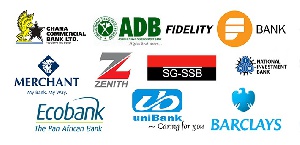 Ghana has more than 30 banks operating
Ghana has more than 30 banks operating
“The illiterate of the 21st Century will not be those who cannot read and write, but those who cannot learn, unlearn, and relearn” – Alvin Toffler
A corporate board of directors that demonstrate a commitment to governance excellence can create value for a company, however, absence of leadership can destroy it. With increased regulation, shareholder pressures, and corporate governance reforms in response to scandals in recent years, the oversight role of boards have been strengthened leaving behind the role of leading. However, in the 21st Century, becoming better monitors alone is not enough; Board of directors need to know when to take charge, when to partner, and when to get out of the way. The fate of businesses depends on their effective leadership.
This brings into question the composition of the board, the diversity of knowledge and experience the members bring on board and their willingness to learn. In the key areas of Strategic planning, leadership and personal development, directors must be on top of their game. In the banking sector, they must display knowledge of finance, banking and industry knowledge, market awareness and business know-how. In leadership, the ability to direct and manage change, dealing with people, influencing and negotiating, boardroom practice, teamwork. Being a director, also entails devoting time and effort to personal development. Work on your self perception, judgement and decision making skills, managing workload and pressure, interpersonal communication skills as well as presentation skills.
Because organizations are facing increasingly complex set of challenges, building and designing a strong board that promote sound governance practices has become more important than ever. Board members must avail themselves with the latest cutting edge research and knowledge in their areas of operation. They can do this by training.
Most often than not in many parts of Africa, hardly do you see senior managers, directors, CEOs, board members etc undergoing training or learning to improve themselves, once they attain such positions. They often assume they have reached the top of their careers, so they know it all and therefore not necessary to do any form of training yet things are changing all the time. In today’s rapidly changing, often turbulent, but increasingly competitive business environment, continuous education is a business necessity.
Most of these gentlemen (usually men) since graduating from school in the 1960s, 1970s, 1980s and 1990s, have not read a single book on management, leadership or strategy. Meanwhile the world has changed dramatically since then and their knowledge may be outmoded. Taking self development serious, and constantly renewing and refreshing your knowledge will help a lot to improve performance. Part 3 will focus on “Effective Boards for effective performance”